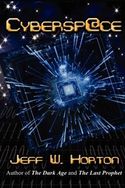
 My name is Jeff Horton, and I am a novelist. I say I am a novelist and not an author because an author can be someone that writes about anything including novels, historical biographies, travel guides, etc., while a novelist is an artist, a painter if you will. Imagination is the paint and the keyboard the paintbrush.
My name is Jeff Horton, and I am a novelist. I say I am a novelist and not an author because an author can be someone that writes about anything including novels, historical biographies, travel guides, etc., while a novelist is an artist, a painter if you will. Imagination is the paint and the keyboard the paintbrush.
I enjoy writing because for me it is pure creativity. From my imagination proceeds people, places, sights, sounds, and events which have never really existed. For me, writing a novel is sort of like watching a movie. I start writing with an idea of what I’m after, but the story truly takes on a life of its own as I write, often taking me in a direction I never could have imagined it going in before. The end result is that I have no idea how the story is going to end myself until I have finished the first draft. Even then, the story can morph as I make my way through a series of inevitable revisions where the rough stone is cut and chipped away at, before being polished into what I consider to be a work of art.
When I write, I strive to create story lines that are meaningful on many levels. I like to explore and understand the emotions, the struggles and the pain that we feel as human beings, as well as the joy. It is also important that there is a message in the story, a warning, a message of hope, etc. I want readers to always come away having learned something new, something valuable, and something important. These are ambitious goals, of course, and unfortunately, I’m never as successful as I would like to be at meeting these goals.
Another thing that is important to me as a novelist is that the characters, the events, and the setting all feel very real to the reader. This then is a key, in my opinion, to drawing the reader more deeply into the story. People are complex creatures and rarely (if ever) do we really know anyone. It is unfair therefore to suggest to readers that a character is a cardboard figure. While I may not spend as much time on every character as I would like in the interest of brevity, I do try and ensure that at least the key players are well-developed, and that they also change and grow as the story progresses.
My first three books were mostly futuristic, apocalyptic thrillers, all written for the masses but from a Christian worldview. My faith in God makes up a big part of who I am and what I do, and I’m sure it comes through in my writing. My next book, which reflects that faith, is different than the first three because it’s more of a YA/juvenile novel entitled THE WAY OF NACOR. My goal (always lofty!) with The Way of Nacor was to create a well-blended recipe of a little Chronicles of Narnia and a little Pilgrims Progress, with a pinch of science-fiction thrown in as well. In THE WAY OF NACOR, a family of children is stranded on another world, where they face many obstacles as they try to find their way home. The novel following THE WAY OF NACOR is a techno-thriller entitled CYBERSP@CE. I like to think of it as Tom Clancy meets Michael Crichton (two of my favorite authors).
EXCERPT-CYBERSP@CE
Several hours passed, and the foursome returned to the warehouse. “Come! We must turn on the television and watch the news. How else will we know for sure whether the attack worked as planned?” asked Chervanko, as he led the way into the office where a small television sat, and turned it so they could see. He turned it on and flipped through the channels until an image of two nuclear reactors appeared. Underneath was a caption that read, “Nuclear Meltdown Possible At New York Power Plant.” The reporter was saying something as Chervanko turned up the volume.
“—and the local sheriff’s office informed us only moments ago that they have done all that they can do to evacuate the area, given the extremely congested roadways which are already virtually nothing but parking lots. The National Guard is also being deployed, although few believe they will be able to evacuate so many in such a brief period of time. If you’ve just joined us, we have some very important, late-breaking news. New York City, along with the Department of Homeland Defense, held a joint press conference just fifteen minutes ago, announcing that a serious problem was detected at the Indian Lake nuclear power plant only two hours ago. The problem, which has been closely monitored since, is reported to be a problem with the coolant system at the plant, a problem which could very well lead to a meltdown. While not yet calling such a meltdown imminent, the government has issued an evacuation for anyone living or working within thirty miles of the Indian Lake nuclear power plant, warning of a deadly threat from radiation fallout facing anyone within the evacuation zone. We’ve invited Dr. Marcella Blanco to join us; she is an expert with the CDC. Welcome, Dr. Blanco, thank you for joining us.”
“Thank you for having me.”
“Dr. Blanco, if both reactors do somehow melt down, how bad will it be? Will it result in many deaths?”
“Absolutely. Early estimates from a decade ago suggested that at least one hundred thousand people would receive a fatal dose of radiation. That area has seen a significant amount of growth over the past decade, however, so the number has climbed to perhaps as high as one hundred twenty-five thousand people.”
The anchor sat silently, looking stunned for a moment. It was one of those rare moments of silence on live television when no one speaks. One of the producers must have yelled at her through her earpiece because she suddenly jolted out of it.
“Excuse me, Dr. Blanco, but you’re saying over one hundred twenty-five thousand people are going to die tonight?”
Her face was still pale, white as a sheet.
“Well, if both reactors melt down, as many as one hundred twenty-five thousand people would likely be exposed to a fatal dose of radiation, yes. Depending on their level of exposure, death could take days, weeks, possibly even months to occur.”
“If someone cannot get away in time, is there anything they can do?” “Anyone who is within ten to twenty miles of the plant and is unable to leave should get inside and as far underground as possible. But let me please reiterate that this is a very serious danger to everyone in the area. If at all possible, everyone within a thirty mile radius should evacuate immediately. Please don’t wait until it’s too late.”
“Thank you, Dr. Blanco.”
“You’re very welcome.”
The news anchor turned to face the camera.
“Next up, we have Jason Michaels, a former consultant to the Department of Homeland Security. Welcome Mr. Michaels, it’s great to have you with us today.”
“Thank you, Michelle; it’s great to be here, though I wish it were under better circumstances of course.”
“Of course,” she repeated. “So Jason, do you have any idea what happened at the plant; was it some kind of equipment failure?”
“From what I’m told, Michelle, at approximately 2:05 p.m. today, the systems at the plant that control the water used for cooling the control rods in both reactors suddenly shut down, but only after sending instructions to the programmable logic controllers to close all valves in the cooling system. At this time the PLCs continue to be unresponsive and all valves remain closed. Once the super-heated water evaporates, the rods will be exposed and the reactors will melt down. I’ll tell you something else, too…the most disturbing aspect of this disaster is that the shutdown appears to have been done intentionally by someone, remotely.”
“So the system was shut down remotely. Why would someone with the power company have done that intentionally, while the plants are still in operation; isn’t that dangerous?”
“Very. Apparently the systems were not shut down by anyone at the plant though. Based on all of the information I’ve been able to gather, everyone associated with the Indian Lake plant denies having anything to do with what’s happened. My contacts told me that the system wasn’t designed like that anyway. That’s why this was, in my opinion, an act of terrorism.”
“Wow, that is really frightening!” exclaimed the anchor, staring in disbelief. “How could an unauthorized person access the water control system remotely? Why would that even be possible?”
“I asked that same question. It seems that the company installed the remote access capability so they would be able to activate the water control pumps remotely in the event of some kind of accident, in case there was no one able to do it at the plant itself. Unfortunately, with so many systems connected to the Internet these days, it’s possible—let me stress possible—that someone hacked in, circumvented the considerable security, and shut them down remotely.”
“But wouldn’t it require substantial resources to be able to pull something like that off without being caught?”
“Yes, it would. Typically, only nation states have the kind of access to the resources needed to pull something like this off, not to mention the skills. It might be possible that an individual could do this I suppose, but I don’t see how.”
“Does the DHS have any idea where the attack originated?”
“Well, as you noted earlier, I no longer work at the DHS. A source of mine does still work there, however, and they called me thirty minutes after they learned the systems had been shutdown.”
“What did they tell you?”
“They told me that they had traced the IP address of the intruder.”
“To where?” asked the anchor.
“China.”
To comment on Jeff Horton’s blog please click here.


No Comments
Comments are closed.